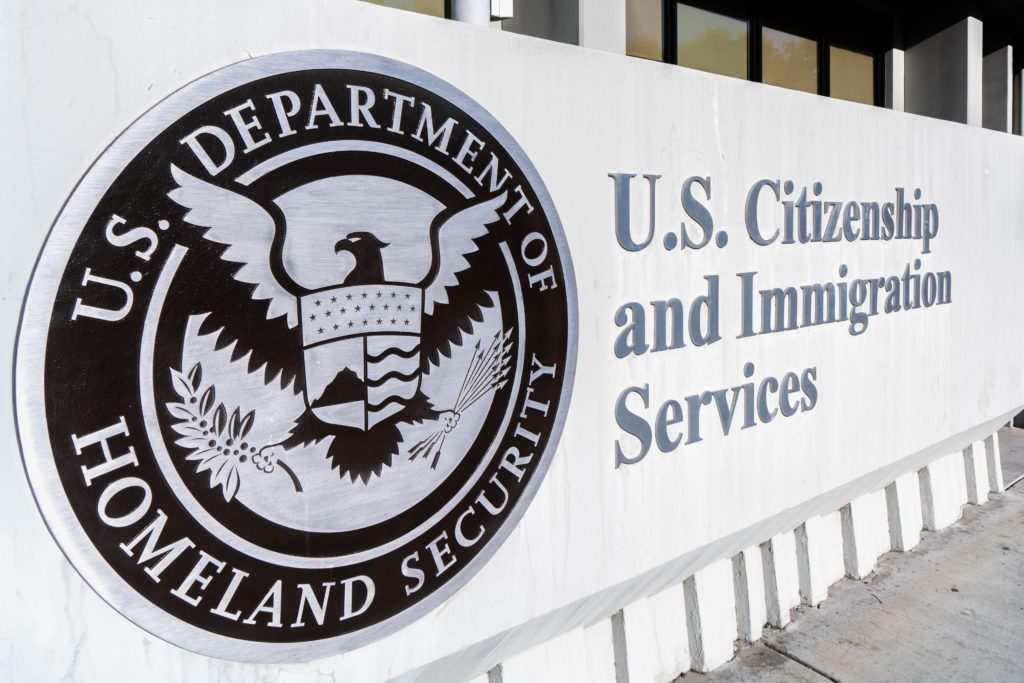The Department of Homeland Security has enacted a new Public Charge Rule that could impact the way new immigrants are allowed into the United States. Several states fought the rule change in court, but eventually, the U.S. Supreme Court stayed the last injunction on it – and now DHS has implemented it. Here’s what you need to know.

DHS’s New Public Charge Rule
The Public Charge Rule will most likely reduce the number of people who are eligible for green cards and visas. In order to understand whether it will impact you or the people you care about, you need to know that a “public charge” is someone who receives certain types of public benefits. Under the previous rule, having an affidavit of support helped U.S. Citizenship and Immigration Services determine whether someone was likely to become a public charge – but under the new rule, USCIS can weigh things like an applicant’s:
- Age
- Health
- Family status
- Education and skills
- Assets, resources and financial status
- Expected period of admission
USCIS can look at an applicant’s Affidavit of Support as well.
So who decides whether an applicant is likely to become a public charge? Individual adjudicators decide – and that means inconsistent and unpredictable decision-making.
Related: Can you get a green card through marriage?
Which Public Benefits Count?
The DHS Public Charge Rule applies to anyone who receives or is likely to receive (again, at an individual adjudicator’s discretion) any of the following benefits for more than 12 months within any 36-month period:
- Supplemental Security Income (SSI)
- Temporary Assistance for Needy Families (TANF)
- Any federal, state, local or tribal cash benefit programs for income maintenance
- Supplemental Nutrition Assistance Program (SNAP)
- Section 8 Housing Assistance under the Housing Choice Voucher Program
- Section 8 Project-Based Rental Assistance (including Moderate Rehabilitation)
- Public Housing
- Federally funded Medicaid (although there are some exclusions)
USCIS won’t consider things like participation in school lunch programs, the Children’s Health Insurance Program (CHIP), government-subsidized student and mortgage loans, or energy assistance. Likewise, DHS says it won’t consider Medicaid benefits received:
- For emergency treatment
- As services provided in connection with the Individuals with Disabilities in Education Act (IDEA)
- As school-based services or benefits for people who are at or below the oldest age eligible as determined by state or local law
- By aliens who are under the age of 21
- By pregnant women or women who are within 60 days of the last day of a pregnancy
Again, though, individual USCIS officers are responsible for determining whether a person is likely to use public benefits at any time in the future – and that means agents with the same information may make two different decisions.
Does the Public Charge Rule Apply to You?
USCIS can apply the Public Charge Rule to most people who are applying for admission or who are applying to become lawful permanent residents (green card-holders), as well as those who are applying to extend a nonimmigrant stay or change nonimmigrant status. However, some immigrants are not subject to the public charge rule, including:
- Refugees
- Asylees
- Some T and U nonimmigrant visa applicants (human trafficking victims and victims of some other types of crimes)
- Some self-petitioners under the Violence Against Women Act
Related: Common questions about immigration
What About Current Immigration Processes?
If this new, more restrictive rule might affect you, you’ll have to prepare and submit Form I-944, Declaration of Self-Sufficiency, with adjustment filings. The USCIS will have to review thousands of these forms each year, and the sheer numbers could slow down the entire process. Your Norfolk immigration attorney can help you file the appropriate forms to adjust your status.
Other Consequences of the Public Charge Rule’s Restrictions
Critics believe that the new rule is likely to cause a ripple effect across the United States. A recent study by the Urban Institute showed that approximately 14 percent of adults in immigrant families won’t apply for public benefits – even in cases of extreme need – because they’re afraid doing so will jeopardize their immigration cases or prevent them from getting a green card. With the new rule, it’s even more likely that people will forego their basic needs, even if the types of benefits a person needs won’t affect his or her immigration status.
Do You Need to Talk to a Lawyer About How the Public Charge Rule Might Affect Your Immigration Status?
If you need to know more about the Public Charge Rule, or if you need help filing the appropriate paperwork to adjust your status, apply for citizenship, or apply for an immigration visa, we may be able to help you. Call us at 757-464-9224 or contact us online to schedule your consultation now.